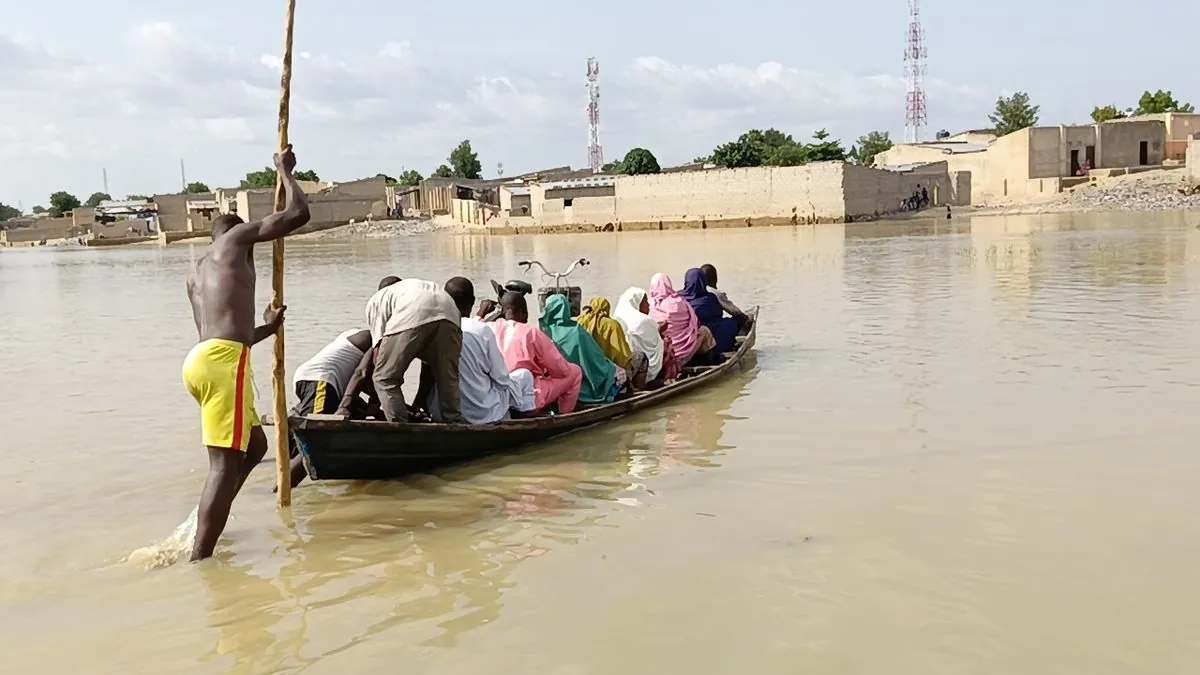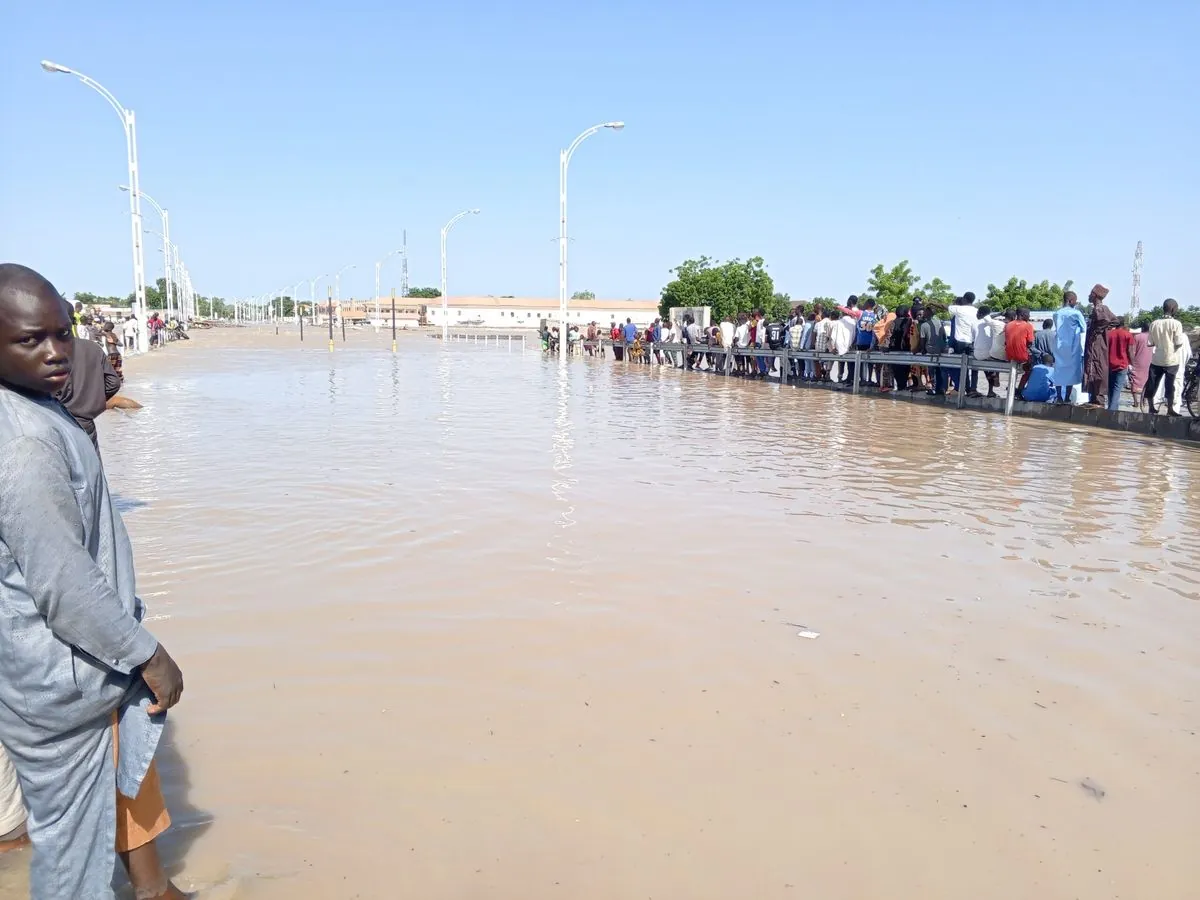Devastating Floods in Nigeria's Borno State Decimate Zoo Animals
Severe flooding in northern Nigeria's Borno state has killed over 80% of animals in a major zoo. The disaster, caused by a dam overflow, has also affected critical infrastructure and displaced thousands.

A catastrophic flood event has struck Borno State in northern Nigeria, resulting in widespread destruction and significant loss of wildlife. The disaster, which occurred on September 10, 2023, has had a particularly devastating impact on the Sanda Kyarimi Park Zoo in Maiduguri, the state capital.
According to official reports, over 80% of the zoo's diverse animal population has perished in the flood. The facility, which housed an array of species including lions, crocodiles, buffaloes, and ostriches, now faces an unprecedented crisis. The zoo management has issued a stark warning to local residents, stating that dangerous animals such as crocodiles and snakes have been swept into nearby communities by the floodwaters.

The flooding was triggered by the overflow of the Alau Dam following heavy rainfall. This dam, constructed in 1988 to supply water to Maiduguri, has become a source of devastation for the very city it was meant to serve. The disaster has not only affected the zoo but also damaged other critical infrastructure in Maiduguri, including the post office and a teaching hospital.
President Bola Tinubu has responded to the crisis, expressing condolences to the affected population and calling for the evacuation of the most severely impacted areas. The government has pledged to address the humanitarian needs arising from this calamity.
"Some deadly animals have been washed away into our communities, like crocodiles and snakes."
This recent flood is part of a troubling pattern of extreme weather events in the region. Just a month prior, in August 2023, at least 49 lives were lost to flooding in northeastern Nigeria. The memory of the catastrophic floods of 2022, which claimed over 600 lives, remains fresh in the minds of many Nigerians.
Borno State, the largest state in Nigeria by land area, faces compounded challenges. In addition to natural disasters, the region has been grappling with a 15-year-long insurgency led by the Boko Haram group. This ongoing conflict has resulted in numerous casualties and displacements, further complicating disaster response efforts.
The current crisis underscores the vulnerability of the Sahel region to climate change impacts. Borno State, with its semi-arid climate and short rainy season, is particularly susceptible to extreme weather events. The shrinking of Lake Chad, which borders the state, serves as a stark reminder of the changing environmental conditions in the area.
As relief efforts continue, the focus remains on safeguarding human lives and preserving the remaining wildlife. The disaster highlights the urgent need for improved infrastructure and disaster preparedness in a region already burdened by conflict and environmental challenges.


































